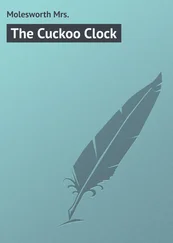Mathias Ardizzone - The Boy with the Cuckoo-Clock Heart
Здесь есть возможность читать онлайн «Mathias Ardizzone - The Boy with the Cuckoo-Clock Heart» весь текст электронной книги совершенно бесплатно (целиком полную версию без сокращений). В некоторых случаях можно слушать аудио, скачать через торрент в формате fb2 и присутствует краткое содержание. Жанр: Старинная литература, на английском языке. Описание произведения, (предисловие) а так же отзывы посетителей доступны на портале библиотеки ЛибКат.
- Название:The Boy with the Cuckoo-Clock Heart
- Автор:
- Жанр:
- Год:неизвестен
- ISBN:нет данных
- Рейтинг книги:5 / 5. Голосов: 1
-
Избранное:Добавить в избранное
- Отзывы:
-
Ваша оценка:
- 100
- 1
- 2
- 3
- 4
- 5
The Boy with the Cuckoo-Clock Heart: краткое содержание, описание и аннотация
Предлагаем к чтению аннотацию, описание, краткое содержание или предисловие (зависит от того, что написал сам автор книги «The Boy with the Cuckoo-Clock Heart»). Если вы не нашли необходимую информацию о книге — напишите в комментариях, мы постараемся отыскать её.
The Boy with the Cuckoo-Clock Heart — читать онлайн бесплатно полную книгу (весь текст) целиком
Ниже представлен текст книги, разбитый по страницам. Система сохранения места последней прочитанной страницы, позволяет с удобством читать онлайн бесплатно книгу «The Boy with the Cuckoo-Clock Heart», без необходимости каждый раз заново искать на чём Вы остановились. Поставьте закладку, и сможете в любой момент перейти на страницу, на которой закончили чтение.
Интервал:
Закладка:
The door bursts open and the little singer enters like a hurricane in a skirt. Her yellow shoes go flying. Hairpins rain down. She sits in front of her dressing table. I am more silent than the deadest of corpses.
She starts taking off her make-up, as delicately as a pink snake might shed its skin, and then puts on a pair of glasses. She sees my reflection in the mirror.
‘What are you doing in here?’ she demands.
Please forgive this intrusion. Ever since I heard you singing some years ago, my only dream has been to find you again. I’ve crossed half of Europe to get here. I’ve had eggs smashed on my head. And I’ve nearly had my guts ripped out by a man who only fell in love with dead women. There’s no doubt about it, I’m handicapped by my great love. My makeshift heart isn’t strong enough to resist the emotional earthquake I feel when I see you, but here it is, bursting for you. That’s what I’m desperate to say. Instead I’m silent as an orchestra of tombstones.
‘How did you manage to get in?’
She’s furious, but shock seems to dilute her anger. She discreetly removes her glasses and I can tell she’s curious now.
‘Be careful,’ Méliès had warned me. ‘She’s a singer, she’s pretty, you won’t be the first to feel this way about her . . . The master-stroke of your seduction must be to create the illusion that you’re not trying to seduce her.’
I’m flustered. I don’t know what to say. ‘I leaned against your door and it wasn’t closed properly, so I landed on your dressing-room sofa,’ I finally tell her, realising how ridiculous it sounds.
‘Do you make a habit of landing in the dressing rooms of girls who need to get changed?’
‘No, no, not often.’
Each word I say is monumentally important, emerging with difficulty, syllable by syllable; I can feel the full weight of the dream I’m carrying.
‘Where do you normally show up? In the bed or the bath?’
‘I don’t normally show up anywhere.’
I try to remember the lesson in rose-tinted magic that Méliès taught me, for romance: Show her who you really are, make her laugh or cry, but pretend you want to be her friend. Be interested in her, not just her derrière. We don’t hold a candle to someone for as long when we’re only after their derrière , do we?
Which is true, but now that I’ve seen how her derrière moves, I rather fancy it, which complicates matters.
‘Weren’t you the one who made that devil of a racket with your tick-tock during the concert? In fact, don’t I recognise you . . .’
‘Recognise me?’
‘Look, what do you want from me?’
I take a deep breath, using up all the air that’s left in my lungs.
‘I wanted to give you something. It’s not flowers, and it’s not chocolate either . . .’
‘So what is it?’
I produce the bunch of spectacles from my bag, trying not to tremble as I hold the frames out to her. But I can’t help it, the makeshift bouquet clinks and rattles.
Miss Acacia makes a face like a sulky doll. Her expression could be disguising laughter or anger, and I don’t know what to make of it. The bunch of glasses weighs a ton. I’m going to get cramp, plus I look ridiculous.
‘What is it?’
‘A bouquet of glasses.’
‘They’re not my favourite flowers.’ On the edge of the world, somewhere between her chin and the parting of her lips, a microscopic smile glimmers.
‘Thank you, but I’d like to get dressed in peace now.’
She opens the door for me, the light from the street lamp dazzles her. I position my hands between the street lamp and her eyes. I see her forehead unfurrow. It’s a moment of delicious turmoil.
‘I don’t like wearing glasses. I’ve got a small head and they make me look like a fly.’
‘That’s fine by me.’
Mentioning the fly is her ploy to defuse that delicious turmoil; but my answer reactivates it. The brief silence that follows is as tender as a rainstorm of daisies.
‘Could we see each other again, with or without the spectacles?’
CHAPTER SEVEN
In which Little Jack spends his first night in the Extraordinarium, and encounters an ostrich in an extremely bad mood
Miss Acacia’s tiny ‘yes’ could have emerged from a fledgeling’s beak, but for me, it’s a surge of heroic energy. The romantic thrills have begun; my tick-tock sounds like the beads of a necklace clinking between her fingers. Nothing can dent my mood.
‘She accepted your bouquet of twisted glasses?’ asks Méliès. ‘So she likes you! She must like you! No one would accept such a pathetic present if they didn’t have feelings for you,’ he beams.
After regaling Méliès with every detail of our first impromptu encounter, and once my euphoria has subsided, I ask him to check on my clock, because I’ve never felt such intense emotions. Madeleine, how furious you’d be . . . Méliès smiles his big mustachioed grin and then gently starts to manipulate my gears.
‘Does it hurt anywhere?’
‘No, I don’t think so.’
‘Your gears are rather hot, but not unusually so. Otherwise everything’s in perfect working order. Come on, let’s go. Affairs of the heart are all very well, but we need a good bath and somewhere to sleep!’
After exploring the Extraordinarium, we settle into an abandoned stall for the night. Despite our dilapidated surroundings and our growling stomachs, we sleep like babies.
At dawn, my mind is made up: I’ve got to find a job so that I can stay here.
But all the jobs have been taken at the Extraordinarium. All the jobs except one that is, in the Ghost Train, where they need someone to scare the passengers. Sheer persistence gets me an interview with the manager for the following evening.
Seeing as he’s got nothing better to do, Méliès performs a few old tricks at the entrance with his set of hoax cards. He’s a hit, especially with the ladies. His belles , as he likes to call them, form a huddle around his table and marvel at his every sleight of hand. He tells them that he plans to create a story in motion, a sort of photographic book that will spring to life. He knows how to capture the imagination of his belles .
This morning, I saw him collecting cardboard boxes and cutting rockets out of them. I think he still hopes to win back his fiancée. He’s even started talking about the voyage to the moon again. His dream machine is gently revving into action.
It’s six o’clock when I arrive at the great stone entrance to the Ghost Train. I’m greeted by the manager, a shrivelled old lady who answers to the name of Brigitte Heim.
Her face is so tight that you’d think she was gripping a knife between her teeth. She’s wearing big sad shoes – nun’s sandals – that are ideal for trampling on dreams.
‘So, you want to work on the Ghost Train do you, dwarf?’
Her voice reminds me of an ostrich, an ostrich in an extremely bad mood. She has the knack of inducing a sickening sense of panic the moment you meet her.
Jack the Ripper’s last words echo in my head: ‘You’ll soon learn how to survive by frightening others!’
I unbutton my shirt and turn the key in my lock to make the cuckoo sing. Brigitte Heim watches me with the same disdain as the clockmaker in Paris.
‘You’re not going to earn us a fortune with that! But I haven’t got anybody else, so I’ll take you.’
Desperate for the work, I swallow my pride.
My new boss embarks on a tour of her premises.
‘I have an agreement with the cemetery: I collect the skulls and bones of the dead whose families can no longer pay for their burial plot,’ she says, proudly showing me around. ‘They make rather good decorations for a ghost train, don’t you think? And anyway, if I didn’t collect them, they’d be tossed on to the rubbish heap!’ she declares, in a voice that’s creaky and hysterical.
Читать дальшеИнтервал:
Закладка:
Похожие книги на «The Boy with the Cuckoo-Clock Heart»
Представляем Вашему вниманию похожие книги на «The Boy with the Cuckoo-Clock Heart» списком для выбора. Мы отобрали схожую по названию и смыслу литературу в надежде предоставить читателям больше вариантов отыскать новые, интересные, ещё непрочитанные произведения.
Обсуждение, отзывы о книге «The Boy with the Cuckoo-Clock Heart» и просто собственные мнения читателей. Оставьте ваши комментарии, напишите, что Вы думаете о произведении, его смысле или главных героях. Укажите что конкретно понравилось, а что нет, и почему Вы так считаете.












